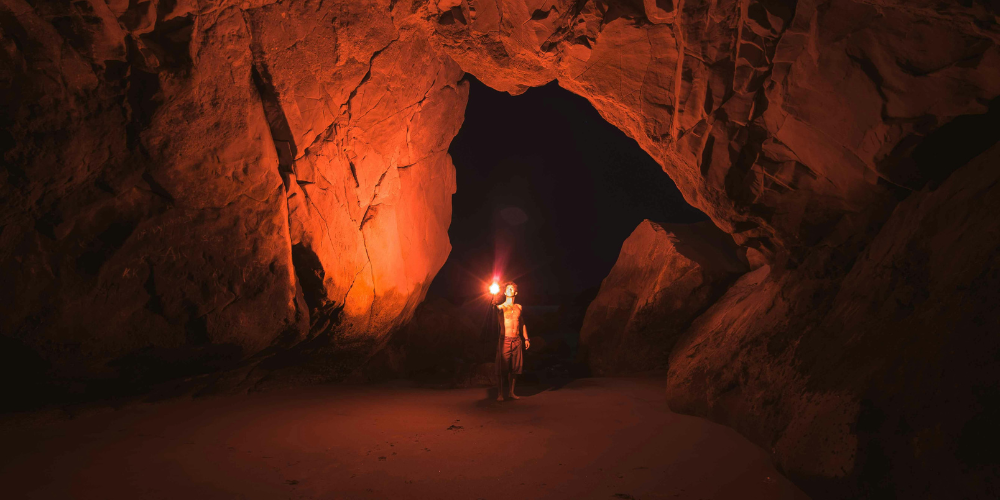First steps in writing a family history?

Last year, I decided that I wanted to learn more about my family history and start writing a narrative that centers on my grandmother, a woman who immigrated to the U.S. as a domestic worker in the early 1970s. I’m not sure if this will just turn into a series of blogpost or writing that will evolve into a book project. However, the journey so far has felt like stumbling in the dark. As a child of immigrants and a descendant of enslaved people, finding specific documents about my grandmother and her own ancestry at the turn of the 20th century and earlier has been difficult. I’ve emailed embassies and librarians and have turned up empty-handed so far. Uniting fragments of a family history to form a coherent narrative has been difficult.
I began writing this post as a way to convince myself to persist in figuring out ways of filling in the gaps where information is not available. My plan was to ultimately use these posts as ways of keeping track of this project and its evolution. Each post would be my way of keeping myself accountable and creating an archive of the documents and relevant material about my grandmother and the immigration wave she was part of.
However, in the midst of drafting this post, I stumbled onto a wonderful interview between Quinta Brunson and Jennifer Aniston that led to a change in perspective on this project. I get such a high from seeing two women talk about their craft and show mutual respect and adoration for each other’s careers, and the interview has also been a great way to learn more about Brunson herself and how her love of classic sitcoms shaped her storytelling. It’s made me think about what tone a story about my family would have, what really appeals to me about it, what novels, histories, films, and tv shows will I look toward for inspiration.
Finding a guiding light
In doing a quick read of some of Brunson’s interviews, one quotation from The New Yorker in particular stands out in clarifying how I might envision this project centered on my grandmother’s life. In the piece, Erin Wehrenburg, ABC senior vice president of Network Comedy, says Brunson’s inspiration for Abbott Elementary, a hit TV sitcom that takes the format of a mockumentary of fictional elementary school teachers in Philadelphia, is based on Brunson’s mother. While this is true, Brunson seems to describe her characters more precisely. “Six different characters on ‘Abbott’ are six different ways of showing people who I am,” she tells the interviewer.
That perspective has helped me begin to understand how to fill in the gaps in the narrative I want to write about my grandmother, my family, and their lives in the 1970s as newly arrived immigrants. There are barriers to telling their full story, some of which are archival and that I hope I’ll overcome. However, there are others that I won’t. I can never fully understand the life my grandmother lived and her interiority nor should I try to excavate and reimagine the moments of her life that were hers and hers alone. As much as I will continue to try to find documentation and other tangible information that answer the questions I have about her life and how she began establishing herself and her family in the U.S. as a single mother, much of my curiosity about that history is driven not only by a need to understand her but also to understand myself through my perception of what she went through. And perhaps that’s where I can actually begin. Maybe her story, as I perceive it, is actually a story about myself, too.
